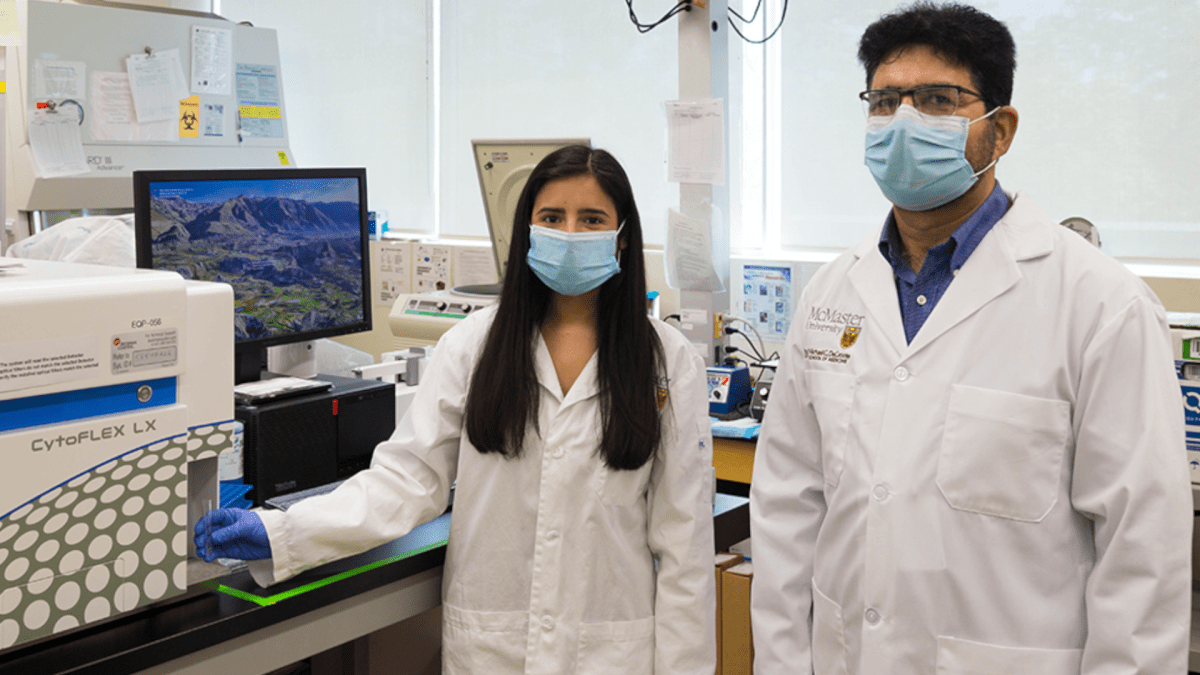Researchers with McMaster University say they have developed a promising new cancer treatment that uses genetically engineered cells to find and destroy malignant tumours without damaging healthy cells.

The study, associated with McMaster’s Department of Medicine and its Immunology Research Centre, suggests immunotherapy with modified “natural killer” cells (NK cells) could be an alternative to current T-cell therapy, a white blood cell treatment, which is highly effective against some blood-borne cancers but does not distinguish between cancerous and non-cancerous cells.
Traditionally, T-cell therapy has worked against some blood-borne cancers but has not been as good with the treatment of solid tumours and in some cases has caused potentially lethal side effects.
The researchers’ current experiment created an immune response by propagating NK cells from the blood of patients with breast cancer from Hamilton’s Juravinski hospital. They then genetically modified those cells to target specific receptors on cancer cells.
The so-called “CAR-NK” cells — receptor proteins engineered with the ability to target a specific protein — were able to differentiate between cancer and healthy cells intermingled in and around tumours.
Lead author Ana Portillo, a PhD candidate at McMaster, says the idea is to seek out and attack malignancies that have been resistant to other treatments.

Get weekly health news
“The efficacy we see with CAR-NK cells in the laboratory is very promising and seeing that this technology is feasible is very important. Now, we have much better and safer options for solid tumours,” Portillo said.
Portillo’s supervisor, Ali Ashkar, believes the technology would be effective against solid tumours associated with breast, lung, ovarian and other cancers.
“These cells have a sober second thought that says, ‘I recognize this target, but is this target part of a healthy cell or a cancer cell?’ They are able to leave the healthy cells alone and kill the cancer cells,” Ashkar said.
Portillo, Ashkar, and 12 other co-authors are behind a paper tied to the treatment in an issue of the journal iScience.
The next step in moving the therapy toward clinical use is to conduct human trials, which the researchers are now arranging.










Comments
Want to discuss? Please read our Commenting Policy first.